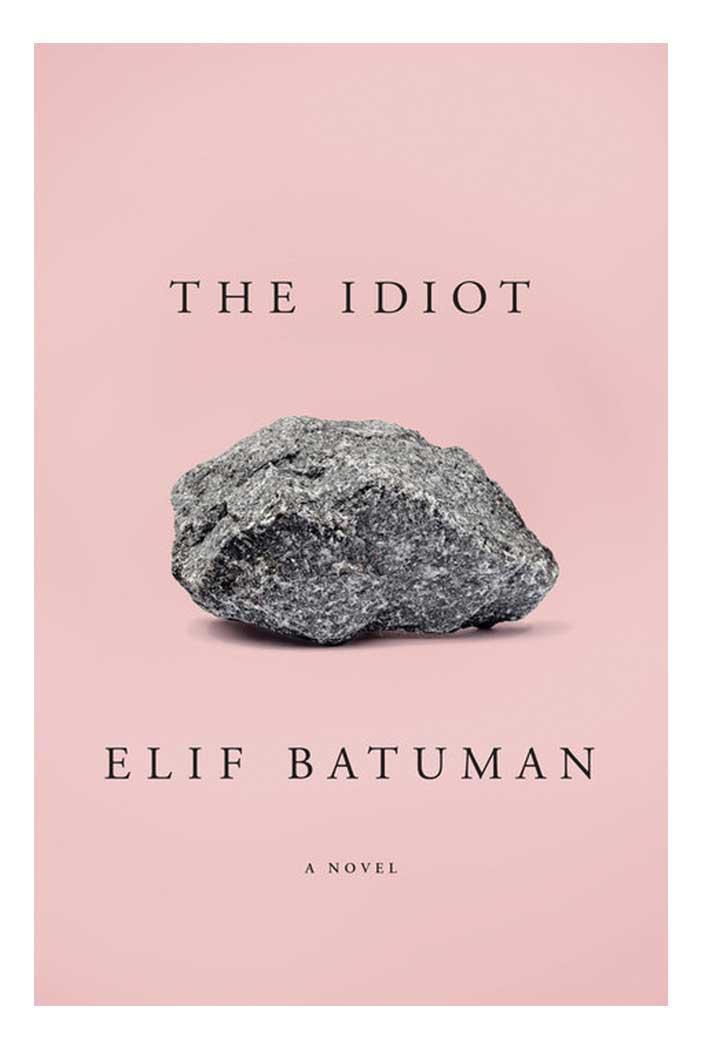‘The Idiot’ by Elif Batuman
William Armstrong - william.armstrong@hdn.com.tr
 ‘The Idiot’ by Elif Batuman (Penguin Press, 432 pages, $27)
‘The Idiot’ by Elif Batuman (Penguin Press, 432 pages, $27)
The epigraph to Elif Batuman’s debut novel “The Idiot” quotes Proust: “In later life we look at things in a more practical way, in full conformity with the rest of society, but adolescence is the only period in which we learn anything.” “The Idiot” has been described as a coming-of-age bildungsroman, but the protagonist Selin reflects plaintively at the end that she has “learned nothing.” The novel is still a richly rewarding and enjoyable read.

The year is 1995. Selin is an awkward and self-doubting student of linguistics and Russian at Harvard. Wide-eyed and bookish, she obsesses over the possibilities and limits of language. She says she feels small and “loose in the world, like a ball in a lottery machine.” She is the kind of person who thinks to herself while searching for new clothes: “What was ‘Cinderella,’ if not an allegory for the fundamental unhappiness of shoe shopping?”
Her perennial confusion is complicated by love interest Ivan. A Hungarian mathematics student on the verge of graduating, Ivan is the focus of Selin’s endless agony and curiosity. They initially communicate in a series of emails - still a primitive technology at the time – and Selin soon becomes obsessed. Other characters drift in and out of the narrative, but Ivan’s enigmatic presence remains constant throughout.
Asking readers to commit to over 400 pages about a callow undergraduate’s first year at university may seem a bit much. But the book sweeps the reader along with cascading paragraphs and rambling asides. The style will be familiar to those who know Batuman from her work in the New Yorker, where she is a staff writer. She has an eye for absurdist detail and “The Idiot” is full of wry, deadpan observations. It has little obvious structure, but that lets the playful writing take its own form. Much of the dialogue is pitch perfect.
Batuman also knows how to write a metaphor. In a pastry shop, Selin orders “a slab of German chocolate cake the size of a child’s tombstone.” At an Army-Navy store, she finds a pair of “unisex lace-up shoes manufactured in Poland out of what looked like waterlogged cardboard.” Viewed from above, a Hungarian town is “spread out like some fantastic salad.” A Boston train is crowded “and smells of the human condition.” At one point there is a splendid description of the start of spring, which neatly reflects Selin’s amusingly morose persona: “Winter drew to a close. Gray dull snowbanks began melting to reveal all kinds of half-frozen garbage. The air smelled of dirt. You were always tripping over dead birds. Daffodils came up, just in time to be crippled by a late snowfall, which turned immediately into slush.”
Toward the end of the novel Selin follows Ivan to Europe. She enrolls in a program teaching English in a remote Hungarian village, where Batuman’s writing revels in the bizarre absurdity of life. Hungary, Selin reflects, felt “like reading War and Peace: new characters came up every five minutes, with their unusual names and distinctive locutions, and you had to pay attention to them for a time, even though you might never see them again for the whole rest of the book. I would rather have talked to Ivan, the love interest, but somehow I didn’t get to decide.”
Much of “The Idiot” reads like a thinly veiled memoir. Like Selin, Batuman is of Turkish descent and grew up in New Jersey before studying at Harvard. This is her first novel, after a
bestselling 2010 book of essays on Russian literature and life itself. “The Idiot” may long and digressive, but by the end it has packed a surprising emotional punch.
* Follow the Turkey Book Talk podcast via iTunes here, Stitcher here, Podbean here, or Facebook here.
 ‘The Idiot’ by Elif Batuman (Penguin Press, 432 pages, $27)
‘The Idiot’ by Elif Batuman (Penguin Press, 432 pages, $27) The year is 1995. Selin is an awkward and self-doubting student of linguistics and Russian at Harvard. Wide-eyed and bookish, she obsesses over the possibilities and limits of language. She says she feels small and “loose in the world, like a ball in a lottery machine.” She is the kind of person who thinks to herself while searching for new clothes: “What was ‘Cinderella,’ if not an allegory for the fundamental unhappiness of shoe shopping?”
The year is 1995. Selin is an awkward and self-doubting student of linguistics and Russian at Harvard. Wide-eyed and bookish, she obsesses over the possibilities and limits of language. She says she feels small and “loose in the world, like a ball in a lottery machine.” She is the kind of person who thinks to herself while searching for new clothes: “What was ‘Cinderella,’ if not an allegory for the fundamental unhappiness of shoe shopping?”